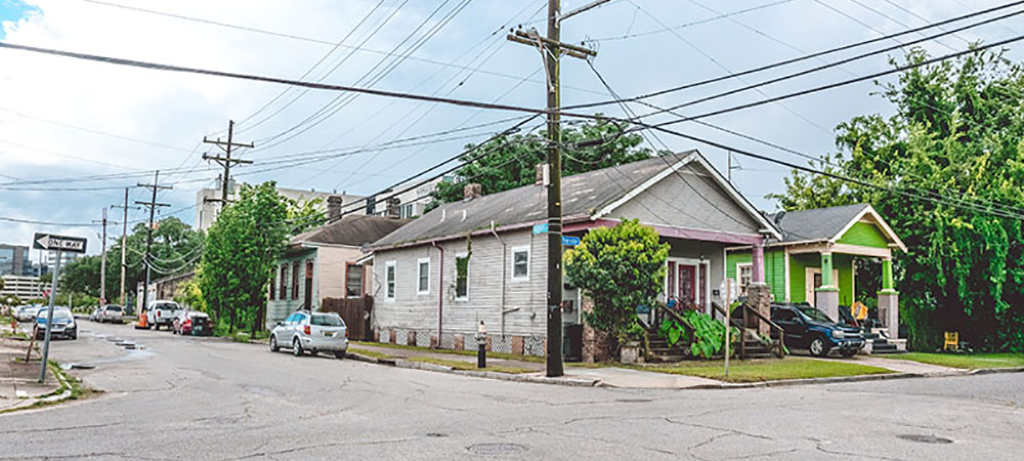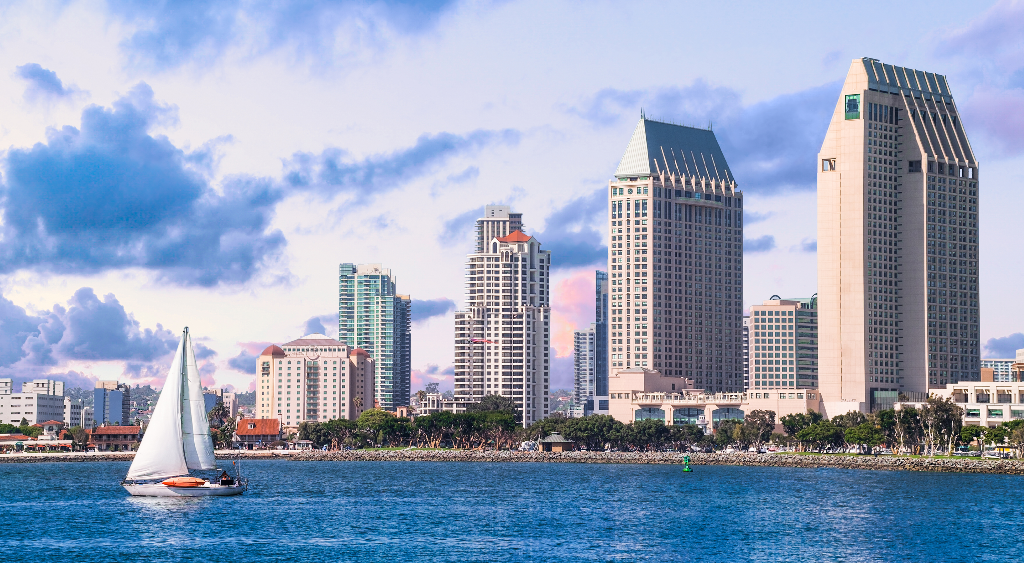Top 13 Cities Where Expenses Exceed Income

- Since the beginning of the COVID-19 pandemic, the cost of living has continued to increase.
- In 13 cities, the median household income may not be enough to cover all expenses as rent has consistently been increasing, and taking up a larger portion of a person’s gross income.
- Knowing ways to reduce expenses becomes a necessary financial skill to get through these times of rising costs.
The average cost of living in major cities has been consistently increasing. Since the beginning of the COVID-19 pandemic, goods and services have continued to rise in the United States due to a global supply shortage. Unfortunately, the living wages have not increased by the same amount, meaning there are certain expensive cities where living expenses exceed the median income. Here are the top 13 cities where the average salary may not be enough to cover your living expenses and some steps you can take to lower them.
#13: San Diego, California

Image Credit: Dancestrokes / Shutterstock.com
Median household income for a single person: $89,457
Average Monthly rent for a 1-bedroom apartment: $2,916 ($34,992 per year)
Overall Cost of Living: 160.4
#12: Washington D.C.

Image Credit: Orhan Cam / Shutterstock.com
Median household income for a single person: $93,547
Average Monthly rent for a 1-bedroom apartment: $2,335 ($28,020 per year)
Overall Cost of Living: 150.6
#11: Memphis, Tennessee

Median household income for a single person: $43,981
Average Monthly rent for a 1-bedroom apartment: $1,056 ($12,672 per year)
Overall Cost of Living: 77.5
#10: Tampa, Florida

Median household income for a single person: $59,893
Average Monthly rent for a 1-bedroom apartment: $1,915 ($22,980 per year)
Overall Cost of Living: 103.7
#9: Baltimore, Mayland

Median household income for a single person: $54,124
Average Monthly rent for a 1-bedroom apartment: $1,542 [$18,504 per year]
Overall Cost of Living: 91.3
#8: Honolulu, Hawaii

Median household income for a single person: $92,600
Average Monthly rent for a 1-bedroom apartment: $2,042 [$24,504 per year]
Overall Cost of Living: 168.9
#7: Baton Rouge, Lousiana

Median household income for a single person: $46,282
Average Monthly rent for a 1-bedroom apartment: $1,169 [$14,028 per year]
Overall Cost of Living: 91.7
#6: Los Angeles, California

Median household income for a single person: $69,778
Average Monthly rent for a 1-bedroom apartment: $2,734 [$32,808 per year]
Overall Cost of Living: 176.2
#5: New Orleans, Lousiana

Median household income for a single person: $45,594
Average Monthly rent for a 1-bedroom apartment: $1,336 [$16,032 per year]
Overall Cost of Living: 101.6
#4: New York City, New York

Median household income for a single person: $70,663
Average Monthly rent for a 1-bedroom apartment: $3,695 [$44,340 per year]
Overall Cost of Living: 168.6
#3: Philadelphia, Pennsylvania

Median household income for a single person: $52,649
Average Monthly rent for a 1-bedroom apartment: $1,877 [$22,524 per year]
Overall Cost of Living: 105
#2: Miami, Florida

Median household income for a single person: $47,860
Average Monthly rent for a 1-bedroom apartment: $2,307 [$27,684 per year]
Overall Cost of Living: 122.4
#1: San Francisco, California

Image Credit: Pete Niesen / Shutterstock.com
Median household income: $126,187
Average Monthly rent for a 1-bedroom apartment: $3,397 ($40,764 for the whole year)
Overall Cost of Living: 244
San Francisco, known for its tech hub in Silicon Valley, is where many people live. It can be rather expensive, with the monthly rent for a one-bedroom apartment being around one-third of a person's median income. Considering the amount a person also pays for taxes, a significant amount of their gross income will be tied between their rent and taxes.
The Cost of Living Index values seen above compares a city’s costs to the national average. Any number over 100 exceeds the country’s average, and any value below 100 is below the national average.
Since San Francisco has an overall cost of living of 244, that means their overall cost of living is much higher than the rest of the country, and as a result, more people will be struggling to make ends meet, especially with the rising prices. Although some of the other cities do not have an overall cost of living as high as San Francisco, it can be seen that their rent is around 40% of a person’s income.
How to Lower Living Expenses
The cities on this list show that the high cost of living can cause potential financial strains. The values used for these cities were medians and averages, meaning your living condition could differ. Regardless of where you live, if you don’t manage your funds properly you could put yourself in jeopardy of living above your means.
Below are three ways you can lower your expenses and save or redirect your funds elsewhere in your budget.
Recommended Read: 7 Ways to Reduce Your Monthly Expenses
Find Roommates to Split the Rent
One way you can fight the rising cost of living is by getting others to live with you and help pay the bills. By getting multiple roommates, you can split the bills which will help you to save money.
However, to ensure that this situation remains positive for all roommates, make sure you can trust those you want to live with. Otherwise, you could have financial challenges like one roommate always being late to pay their portion of the rent or another roommate not paying anything at all.
Recommended Read: Three Different Ways to Split Rent When Living with Others
Make Purchases in Bulk
Another way to lower living expenses is by purchasing items in bulk. With the rising costs, retaining more of your income is a priority, and lowering your number of transactions per month can help reduce expenses. Impulse purchases can occur if you aren’t disciplined with your finances which also eats away at your ability to save money.
These last-minute decisions to buy an item will lower your disposable income as they will usually be items that you do not need, thus causing you to waste money on an unnecessary item. Lowering your disposable income by making spontaneous purchases could have negative effects as it will be harder for you to lower your debt or put money aside for an investment. Therefore, buying in bulk helps eliminate this problem, as monthly purchases will lower and reduce the possibility of nonessential items being bought, keeping your disposable income higher and allowing you to utilize your funds elsewhere.
Creating a Budget
By tracking your cash inflows and outflows, you can create a budget to help determine how much money can be used on different essentials. Once you know how much money is spent on different expenses, such as rent and other necessities, you can make a budget to help you strategize how to use your money effectively.
Having a budget is beneficial because it visually shows how much money is currently spent, and how much can be spent in total. When budgeting, your goal is to ensure that your needs are covered, and any additional income can be used to invest in the stock market, save money in a bank account, or spend on personal wants. The issue some people run into is they do not prioritize their needs, and end up spending the money they need.
Recommended Read: How to Create a Basic Budget in Three Simple Steps
A budget will help implement financial discipline and lower your chances of making poor financial decisions. Another way that people help prevent financial mistakes is by automating transactions. By having money automatically leave your account, you will not be inclined to use this money, and will help you stay on the straight and narrow when dealing with your money.
Recommended Read: Why People Use Automated Savings Plans
The Money Wrap-Up
The cost of living has increased in recent years due to the pressure from the COVID-19 pandemic. With the current price of rent alone amounting to around 40% of a median household’s income in some of the cities mentioned above, it shows that many people have their income tied up with certain expenses and may have difficulty with additional expenses. Therefore, by coming up with different ways to help reduce your costs, you can utilize your money in other ways such as saving, investing, or paying off debt.